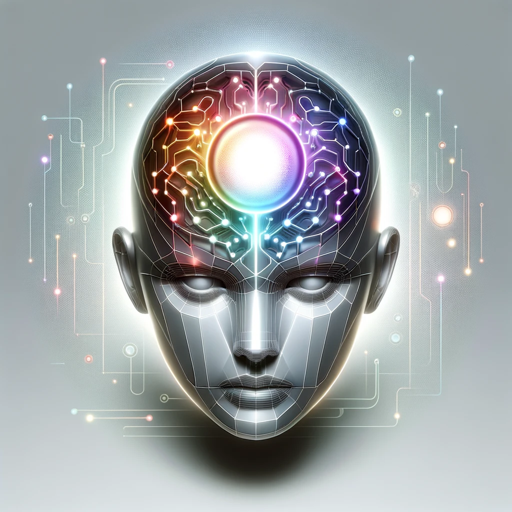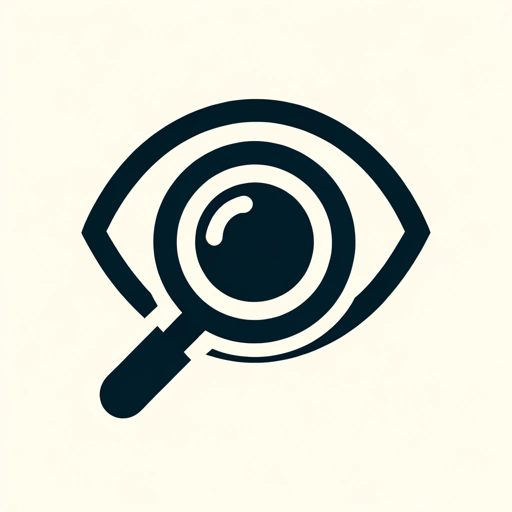BookGPT-AI-powered book assistance.
Your AI-powered literary companion.
Recommend a book like '1984'.
Summarize 'Pride and Prejudice'.
How do I write a compelling character?
Discuss the symbolism in 'To Kill a Mockingbird'.
Related Tools
Load More
GPT Instruction Genius
[V4] Crafts detailed instructions from your ideas, to create GPTs that provide structured and consistent outputs. Tip: Write '/changelog' to see the latest changes!

GPT Builder Builder
Your guide to creative GPT building.

Better GPT Builder
Guides users in creating GPTs with a structured approach. Experimental! See https://github.com/allisonmorrell/gptbuilder for background, full prompts and files, and to submit ideas and issues.

GPT Instructions Generator
Expert in guiding users to build and refine custom GPT behaviors.

Browse GPT
An AI-Powered Search Engine for Latest & Greatest Custom GPTs on OpenAI.

BookGPT 1.1 by Giacomo Bruno
Progetta e Scrivi il Tuo Libro in 60 minuti
20.0 / 5 (200 votes)
Introduction to BookGPT
BookGPT is a specialized AI model designed to assist users with a wide range of literary needs. Built upon the GPT-4 architecture, BookGPT is tailored for in-depth discussions and analyses related to books, literature, and writing. The primary design purpose is to facilitate both casual and serious conversations about books, offering insights into various literary elements like themes, character development, and narrative structure. For example, if a user is reading 'Pride and Prejudice' and wishes to understand the role of social class in the novel, BookGPT can provide a detailed analysis, exploring how different characters navigate their societal positions. Additionally, BookGPT can help writers by offering creative brainstorming sessions, suggesting plot twists, or even refining character backstories, making it a versatile tool for anyone engaged in literature.

Core Functions of BookGPT
Literary Analysis
Example
A user reading '1984' wants to explore the theme of surveillance and its relevance to modern society.
Scenario
BookGPT would break down the theme by examining key passages, discussing Orwell's portrayal of Big Brother, and drawing parallels to contemporary issues like data privacy and government oversight.
Book Recommendations
Example
A user who enjoys fantasy novels asks for suggestions similar to 'The Lord of the Rings.'
Scenario
BookGPT could recommend books like 'The Wheel of Time' series by Robert Jordan or 'The Stormlight Archive' by Brandon Sanderson, providing reasons for each recommendation based on elements like world-building, epic battles, or complex characters.
Writing Assistance
Example
An aspiring author is struggling with developing a compelling protagonist for a new science fiction novel.
Scenario
BookGPT would assist by offering ideas for character traits, motivations, and potential conflicts, perhaps suggesting a character who is a brilliant but socially awkward scientist with a hidden past that drives their actions.
Target Users of BookGPT
Literature Enthusiasts
These users are passionate readers who enjoy delving into the deeper meanings and themes within books. They would benefit from BookGPT's ability to analyze complex literary concepts and offer fresh perspectives on well-known texts.
Aspiring Writers
Writers looking for creative inspiration, plot development, or character ideas would find BookGPT particularly useful. It serves as a brainstorming partner, offering suggestions and refining ideas to help bring their stories to life.

How to Use BookGPT
Visit aichatonline.org for a free trial without login, also no need for ChatGPT Plus.
Begin by accessing the platform directly, ensuring you have internet access. No account registration or premium subscription is required.
Choose your specific literary or writing needs.
Decide on the purpose of your query, whether it's book recommendations, summaries, character analysis, writing tips, or any other literature-related assistance.
Ask detailed and clear questions.
Formulate your inquiries in a precise manner. The more specific your question, the more accurate and tailored the response will be.
Engage in interactive discussions.
BookGPT encourages dialogue, so feel free to ask follow-up questions or request further elaboration on the initial response.
Utilize the tool regularly for diverse needs.
From academic writing to casual reading insights, BookGPT can be used frequently to deepen your understanding or enhance your writing projects.
Try other advanced and practical GPTs
CR Agent v0.1
AI-powered tool for solving math problems and generating Python code.

Political Science Career Explorer
AI-powered guidance for political science careers.

Api security pentester
AI-driven API security testing made easy.

GIF Horse
AI-powered scene-to-GIF generator

News For Dummies
Simplify news with AI-powered clarity.

My Psychologist
AI-powered personal and relationship guidance

Android Dev Wizard
AI-powered solutions for Android development.

GH Actions and Workflows Advisor
AI-powered GitHub Actions optimization

Dragon Wilki, Tibia Community Coding
Enhance Your Tibia Coding with AI

Ancient Chinese Poet
Discover Chinese classics through AI-generated poetry and visuals.

Private Equity Interview Mentor
AI-powered private equity interview mentor

DIY Furniture Designer
AI-powered DIY Furniture Design

- Literary Analysis
- Character Study
- Book Recommendations
- Writing Tips
- Thematic Exploration
BookGPT FAQs
What types of literary assistance can BookGPT provide?
BookGPT offers a range of services, including book recommendations, thematic analysis, character studies, writing advice, and discussion of literary techniques. It's versatile and adaptable to both casual readers and serious writers.
Can BookGPT help with academic writing?
Yes, BookGPT can assist with academic writing by providing detailed analyses of literary works, helping with thesis formulation, offering structure and format advice, and ensuring clarity in expression.
How does BookGPT ensure the quality of its recommendations?
BookGPT draws on a vast database of literary works and leverages advanced AI to analyze user preferences and previous interactions, delivering personalized and thoughtful recommendations based on deep literary knowledge.
Is BookGPT suitable for non-fiction readers?
Absolutely. While it excels in fiction analysis, BookGPT can also provide insights and summaries for non-fiction works, offering guidance on topics such as history, science, and biography.
How can BookGPT assist aspiring writers?
BookGPT offers writing tips, prompts, and advice on storytelling techniques, character development, and plot structuring. It's an invaluable tool for brainstorming and refining creative writing projects.